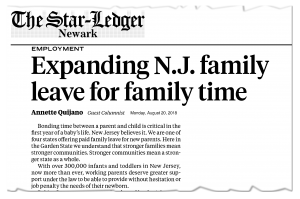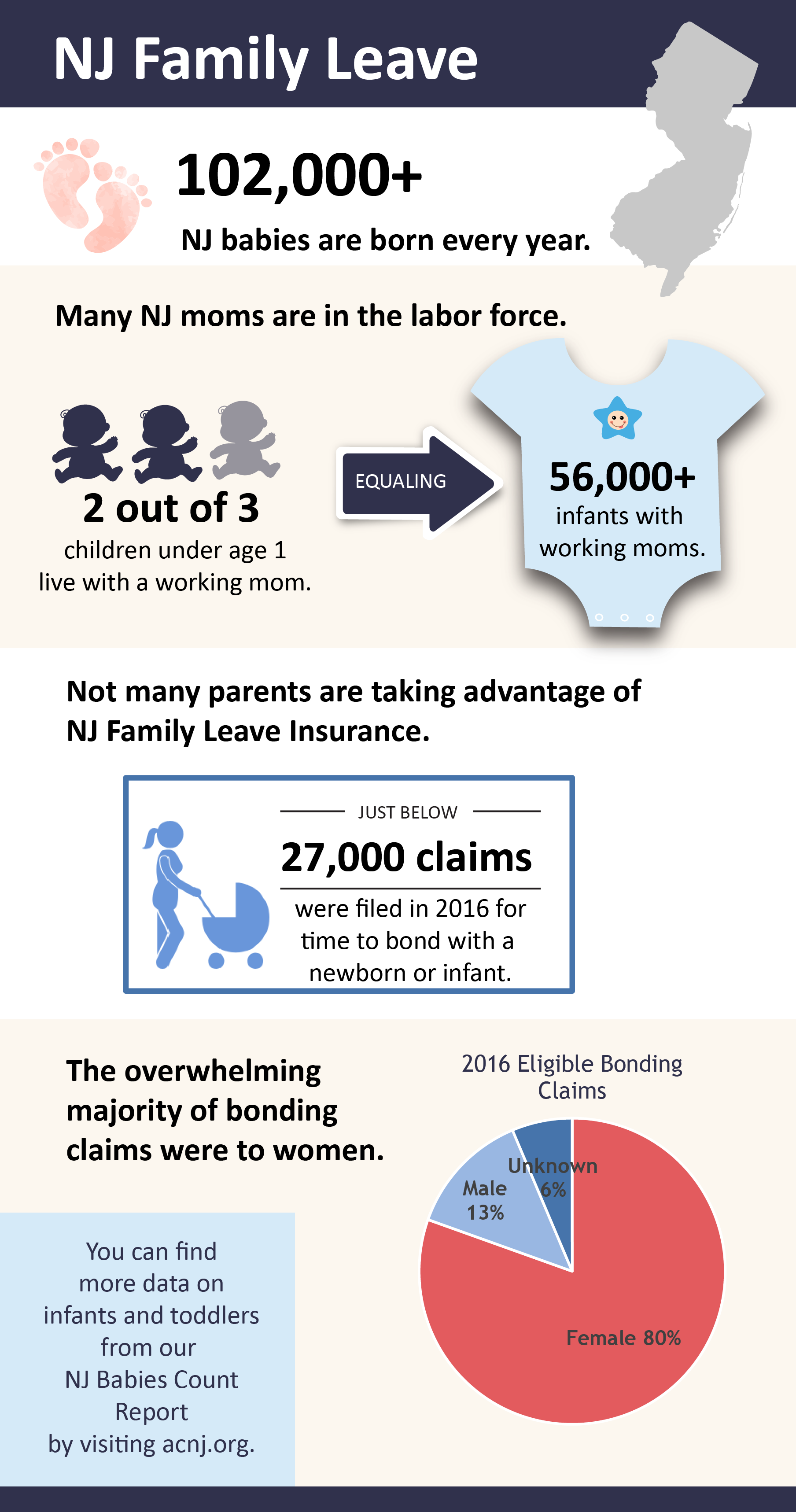
Paid family leave allows working parents to spend time caring for their newborn or infant during a critical bonding period without a complete loss of wages. The time spent at home with their children fosters a nurturing relationship that allows for healthy growth and development. Beyond the benefits of forming strong attachments, the availability of paid leave for both parents is associated with improved outcomes. This includes lower rates of infant mortality and postpartum depression and higher rates of breastfeeding, vaccination, doctors’ check-ups and fathers participating in caretaking.
Paid Family Leave in New Jersey
New Jersey is one of the few states that offers a paid family leave program. However, it only allows for six weeks of leave paid at two-thirds of salary. And under the current law, more than 1 million workers at businesses with fewer than 50 employees are not protected from firing or demotion for taking time off to care for their children.
These factors make paid leave out of reach for many families. In fact, as reported in ACNJ’s Babies Count, more than 56,000 infants in the Garden State had a working mother in 2016, yet only about 27,000 claims were filed by both fathers and mothers for time to bond with a baby.
A more inclusive and effective family leave insurance program has the potential to make New Jersey families stronger, healthier and more economically secure. To do this, the state must strengthen its current policy.
Recommendations for Paid Family Leave
• Increasing the paid leave amount to more closely match a worker’s actual salary
• Expanding the available time from 6 to 12 weeks of paid leave to provide care
• Providing job protection for more workers who want to use paid family leave
By the Numbers



